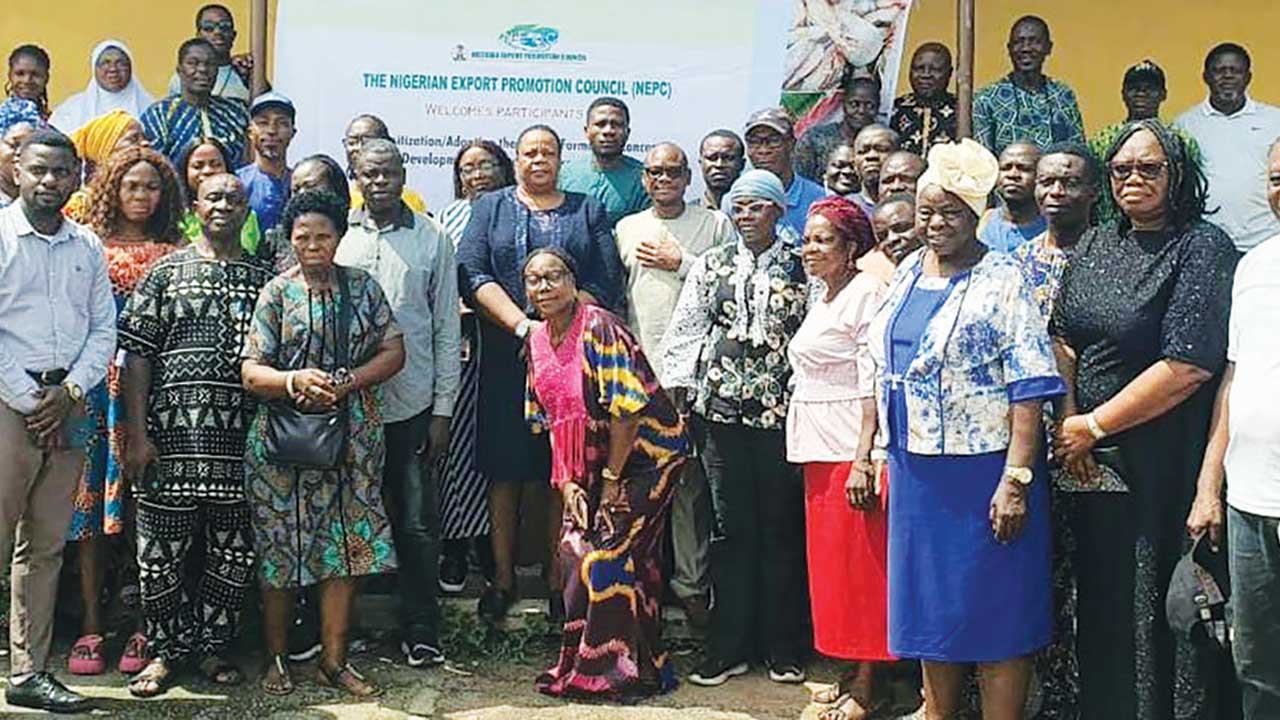To boost non-oil exports and reduce rejection of goods and commodities in international markets, the Nigerian Export Promotion Council (NEPC) is pushing for the adoption of cluster formation and adoption of best practices.
The cluster formation is seen as a strategic concept for export development and economic prosperity, particularly as it concerns the aquaculture value chain.
With a focus on developing the sector for stronger export, Executive Director, NEPC, Nonye Ayeni, at a one-day programme, stressed that aquaculture is one of the fastest-growing segments of the real sector globally.
She noted that with increasing global demand for fish and seafood products, Nigeria is uniquely positioned geographically and resource-wise to tap into this potential and establish itself as a major player in the global market.
“However, the promise of the sector has often been hindered by persistent challenges, chief among them being export rejects in the international market. These rejections, largely due to non-compliance with quality, health and safety standards, undermine our competitiveness and reduce the trust in made-in-Nigeria products. This is a challenge we must face head-on and overcome together,” he said.
Explaining the role of clusters in export competitiveness, she said the concept of cluster formation offers a viable and sustainable pathway to transforming Nigeria’s aquaculture value chain.
“Clusters promote collaboration over competition, shared infrastructure, collective problem-solving and access to better financing, training and market information.
Through cluster formation, exporters benefit from economies of scale, quality and compliance mechanisms can be standardised and monitored more effectively, and stakeholders gain access to targeted capacity-building programs. More importantly, clusters can become certifiable export hubs, aligning production with international standards and minimising the risk of export rejects,” she said.
Lamenting the issue of high export rejects that has afflicted Nigerian-made goods in international trade, she said it is not just a technical challenge but a national economic risk.
Charting the value chain for a successful international trade, Deputy Director, Fisheries, Lagos State, Stephens Olayinka Margaret, urged exporters to stop cutting corners as trying to dress a poor product/commodity simply for the purpose of export will not sustain growth of the sector.
“The reason why our goods are rejected is because many people do not do what they are supposed to do from the very beginning, but want to perform some magic towards the end, hoping for a miracle. Put all that you need to put in place, and you will get the desired results,” she said.
Urging exporters to prioritise standardisation, she said everyone in the value chain has to embrace it so as not to jeopardise the chances of others.
“A well-structured value chain is crucial for ensuring quality and compliance with international standards. A strong value chain can sometimes, when one or two bad batches have been rejected, the next person might have standard goods but might be blindly rejected based on the experiences of the first two. This is why we all must do the right thing,” she said.
She noted that aquatic exports from Nigeria are being rejected on the grounds of containing pesticide deposits, heavy metals, antibiotics, high levels of Polycyclic Aromatic Hydrocarbons (PAHs) from smoking, microbial contamination, poor packaging and labelling, lack of HACCP/GMP certification, as well as inconsistent cold chain and traceability.
“Europe and America do not accept smoked products only dried products, and this is where many export goods suffer rejection no matter how good they are,” she said.






